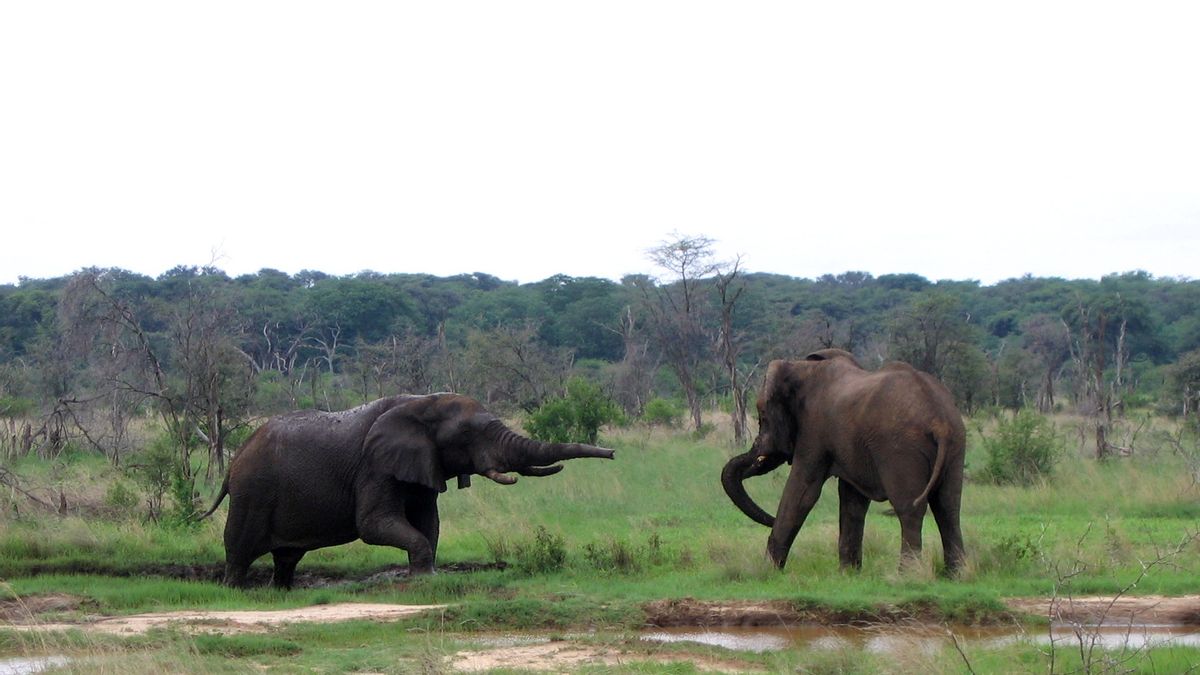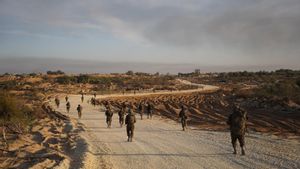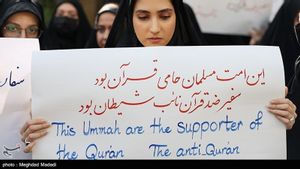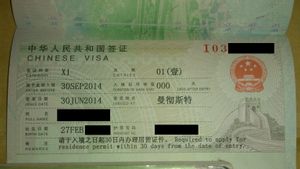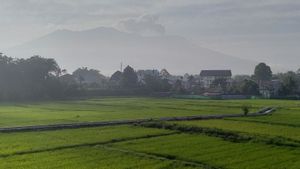JAKARTA - Dozens of elephants died of air in Hwange National Park located in Zimbabwe, with conservation activists worried about losing more elephants due to drought due to climate change and El Nino's global weather pattern that made water sources dry up.
The seasonal El Nino, which causes hotter and drier weather throughout the year, has been exacerbated by climate damage, scientists say.
Hwange National Park does not have a large river that passes through it. The animals there depend on solar-powered drill wells, said the Zimbabwean Parks and Wildlife Authority (Zimparks) official.
"We rely on artificial wells because our surface water has decreased. Because elephants depend on water, we recorded more deaths," Zimparks major ecologist at Hwange Daphine Madhlamoto National Park told Reuters.
The elephant population in Hwange National Park is 45,000. An adult elephant needs 200 liters (53 gallons) of water every day. However, with reduced water sources, solar-powered pumps in 104 boreholes or wells have not been able to suck up enough water.
Dozens of elephant carcasses were seen near water sources, and park officials said the other elephants died in the bushes. It then becomes food for lions and nasar birds.
"This park has seen the impact of climate change. We receive less rainfall," explained Madhlamoto.
It is known, the rainy season in Zimbabwe usually lasts from November to March. However, it has fallen very rarely this year. The Zimbabwe Meteorological Agency estimates that drought will continue until 2024.
Meanwhile, Zimparks said the animals were forced to walk long to find water and food, with several herd of elephants crossing into neighboring Botswana.
BACA JUGA:
While conservation groups are trying to provide additional water by cleaning water holes, pumping more water through solar power wells to help overcome this crisis.
Zimbabwe has an elephant population of nearly 100,000, but its capacity is only half, which means the national park is overwhelmed, Zimparks said.
The English, Chinese, Japanese, Arabic, and French versions are automatically generated by the AI. So there may still be inaccuracies in translating, please always see Indonesian as our main language. (system supported by DigitalSiber.id)
